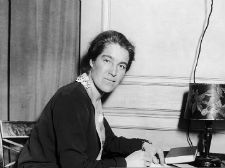On This Day
On This Day, 14 December 1918
On 14, Nov 2018 | In On This Day | By Nicola Gauld
Birmingham Daily Post
Saturday 14 December 1918
EVE OF THE POLL.
THE CAMPAIGN IN THE MIDLANDS.
COALITION CANDIDATES’ BRIGHT PROSPECTS.
After a fortnight’s campaigning Parliamentary candidates will submit their claims to the test of the ballot to-day. The result, however, will not be known until the 28th inst., so as to give time for absent voters to record their opinion. With the unopposed return of Mr. Austen Chamberlain for West Birmingham the contests in the Birmingham divisions have been eleven in number. Here, as elsewhere, it cannot be said that they aroused anything like the interest one would have expected. In some cases candidates have addressed meetings very thinly attended, and in no division has there been anything approaching excitement. Relief from the long strain of war anxiety, with the future of the country hanging in the balance, may have accounted for the apathy witnessed so frequently. Another reason is probably that electors have found the issues confused, especially where there are triangular contests. The rival claims of candidates to being the true Coalition representative have also contributed to the bewilderment of electors whose knowledge of politics is limited. The election, however, must be a memorable one because what hangs upon it, and also because, for the first time, women have become eligible for Parliamentary honours – the natural and inevitable corollary of giving a large number of them the privilege of voting. In Birmingham the only lady candidate is Mrs. Corbett-Ashby, whose appearance in the Ladywood Division has contributed an element of novelty to the fight there. But, taken as a whole, the woman voter has not displayed that keenness in the exercise of the franchise one would have expected, and those who assert that the demand of the sex for electoral rights was urgent and insistent only in the case of a small percentage find support for that opinion in what the Birmingham contests have shown.
With the platform utterances last night the last shots were fired and final appeals made. The Coalition candidates may be said to have emerged from the battle of words with every prospect of success. Their fortunes will, of course, be varying in degree, but there seems no doubt that all will be at the head of the poll. To say “We are twelve” would be a very fine thing and a source of strength to the Government in going to the Peace Conference for terms that will show the war has not been fought in vain, and in launching the policy of reconstruction which the ravages and dislocation of that struggle have made necessary.
Image: Margery Corbett-Ashby, 1920s



